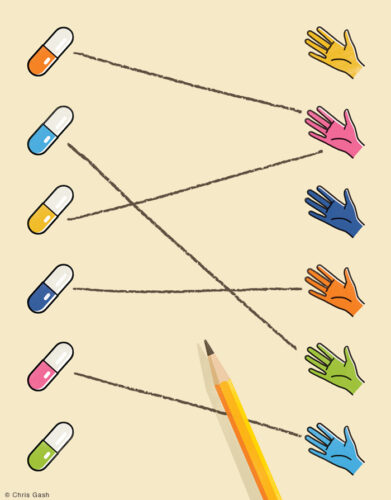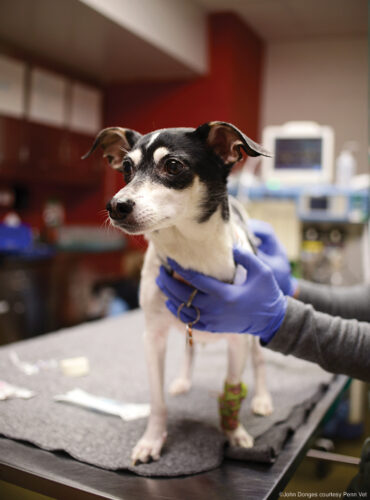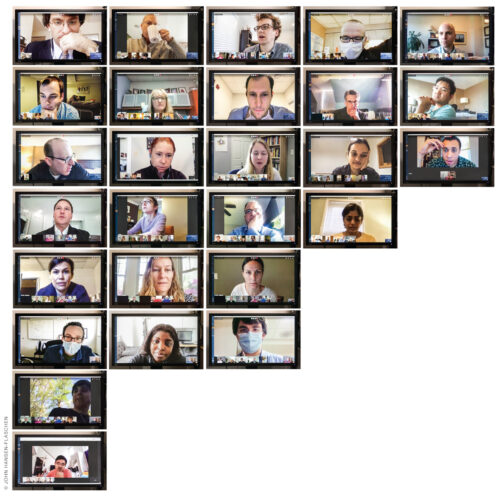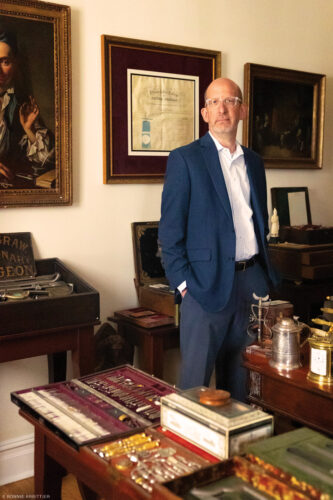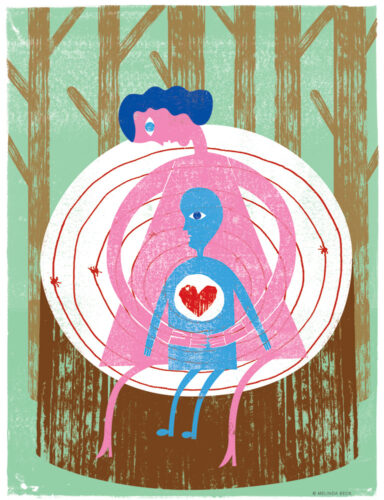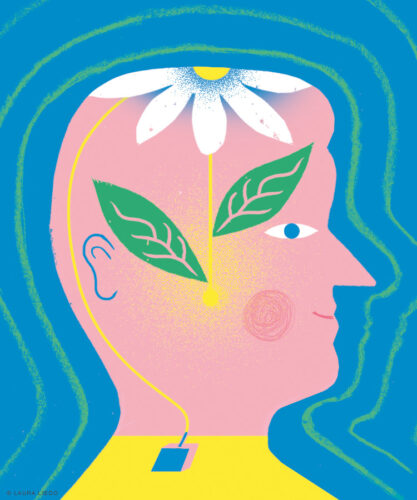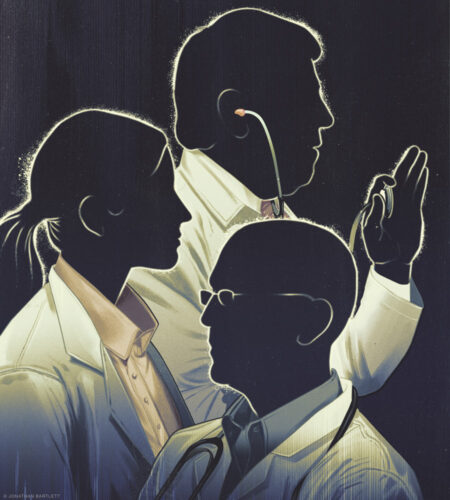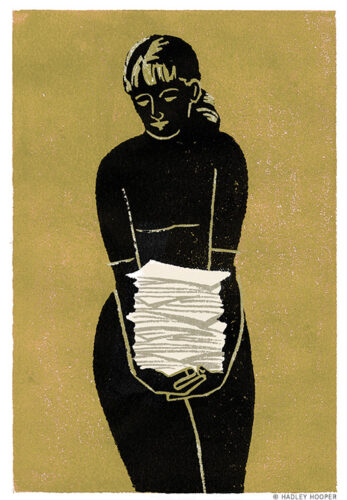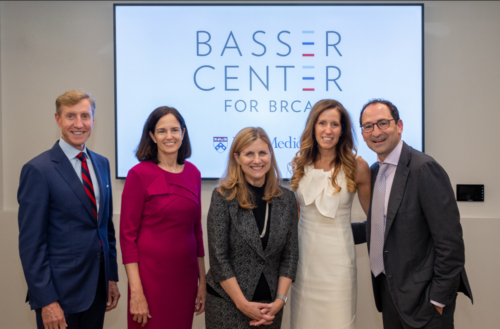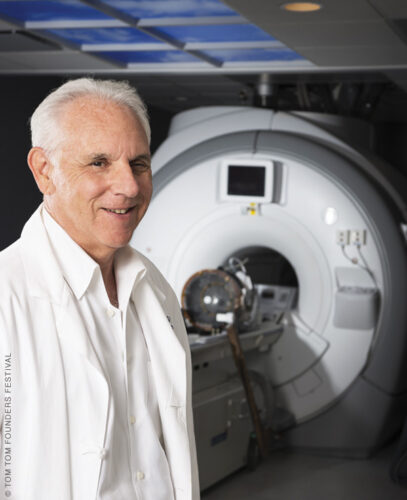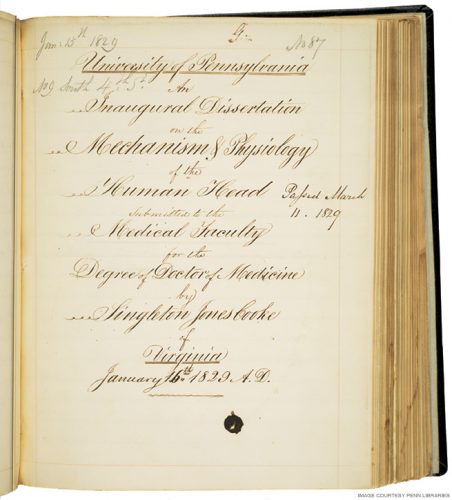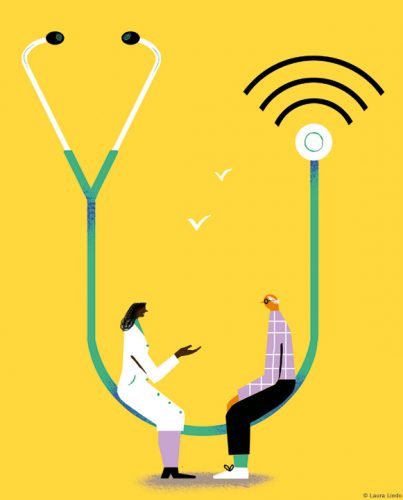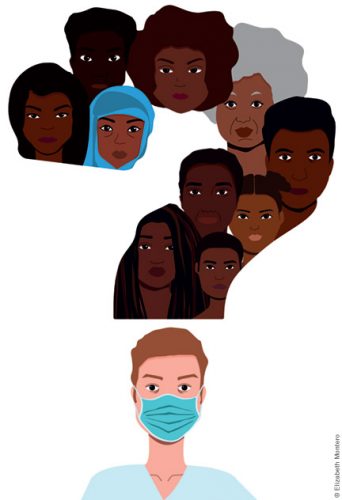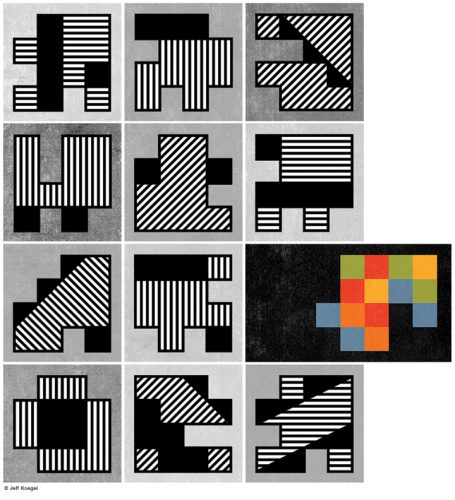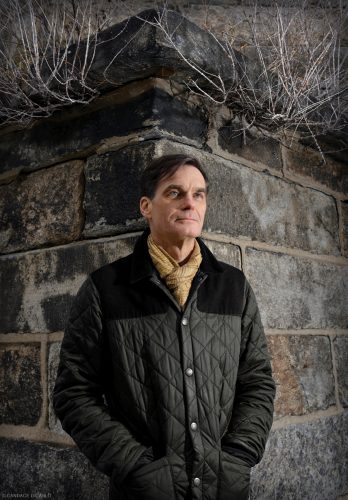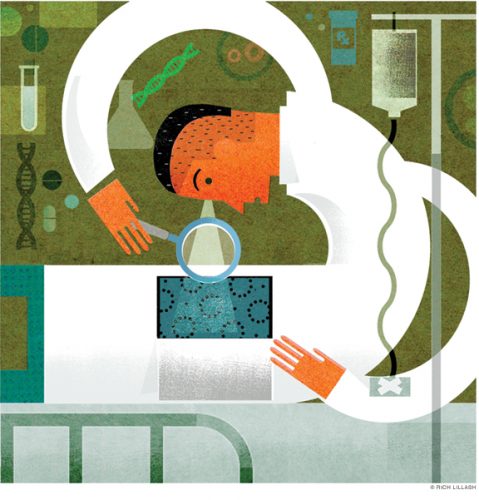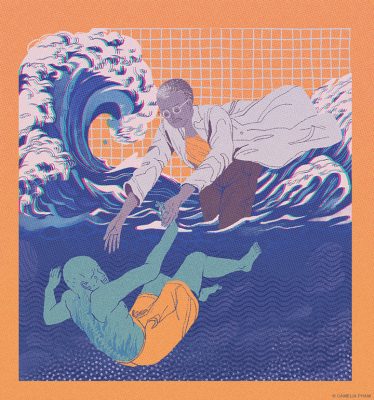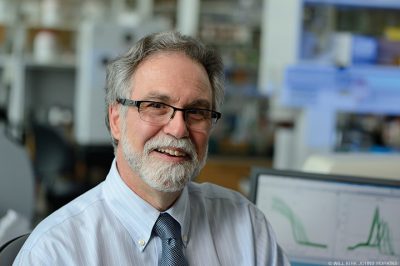Chasing Every Cure
When David Fajgenbaum M’13 WG’15 unlocked his own treatment after being diagnosed with a rare disease, he saved his life. Now he has his sights on a higher purpose that’s bringing hope to millions.
Geddy’s Gift
A dog’s successful brain surgery could advance human care.
Meeting Danger with Courage and Grace
Medical mobilization, March 2020.
Every Bite, Every Day
What one Penn family is doing to raise awareness and research funds for celiac disease—and pursue a cure using mRNA technology pioneered by Drew Weissman.
A Preexisting Condition
Douglas Arbittier C’87 M’91 GM’95 is a sharp collector of medical artifacts.
Going Viral
Arthur Kuan C’12’s company is pursuing a breakthrough cancer treatment.
Mind Tease
How belief in the “intact mind” harms severely autistic people.
Battling a Binging Brain
In pilot study, deep brain stimulation curbed binge eating.
The Disappearing Family Doctor
The costs of not prioritizing primary care.
Combatting Abortion Stigma
A call to remove abortion “stigma” in post-Roe America.
More than $100 Million for Cancer and Autoimmune Diseases Research
$105 million for breast cancer and autoimmune disease research.
Tim Beck’s Final Brainstorms
Recalling their near-weekly conversations over the two-and-a-half years before mental health pioneer Aaron T. Beck’s death at age 100, the author—possible biographer, irritating interviewer, admiring friend—bears witness to the founder of cognitive therapy’s ceaseless quest to live a “rich full life.”
Maintaining Focus
Neal Kassell C’68 M’72 GM’79 chairs the Focused Ultrasound Foundation.
Taking the Pulse of Medical Education
Medical dissertations online.
A Pipeline to a Medical Career
Penn Medicine and Netter Center’s Educational Pipeline Program.
The Vaccine Trenches
Key breakthroughs leading to the powerful mRNA vaccines against COVID-19 were forged at Penn. That triumph was almost 50 years in the making, longer on obstacles than celebration, and the COVID-19 vaccines may only be the beginning of its impact on 21st-century medicine.
Webside Manner
Virtual healthcare by smartphone or computer helps physicians consult with and diagnose patients much more quickly, while offering them convenience and flexibility. The potential to save lives and improve efficiencies is tremendous. But can uncertain regulations and reimbursements, equity and access disparities, and shaky internet connections be surmounted?
Shot of Confidence
The roots of vaccine hesitancy among Blacks.
New Era Dawning
Orphan Disease Center looks to a new era of advances.
The Humanist Is In
In a new book, Jason Karlawish GM’99, codirector of the Penn Memory Center, unravels the tapestry of Alzheimer’s science and history, and outlines the medical, social, and ethical challenges that lie ahead.
Welcome to Year Zero
New doctor, new disease, new parent.
Impatient Hope
“Anything was possible, because no one knew.”
Hero on the Beach
David Langer C’85 M’90 GM’98 helped save a stranger’s life.
Journey to the Nobel
Gregg L. Semenza M’82 Gr’84 is a Nobel Prize winner.

